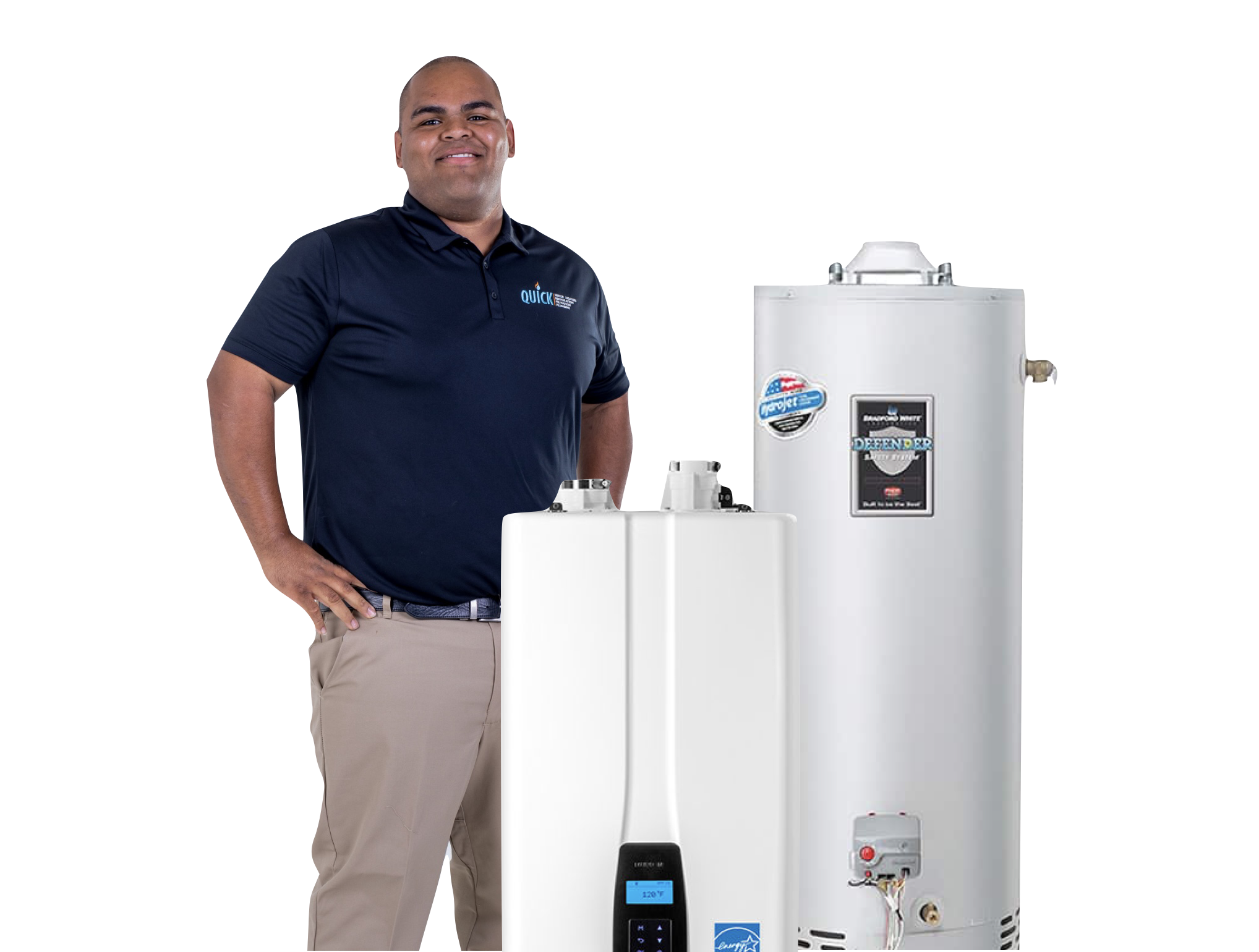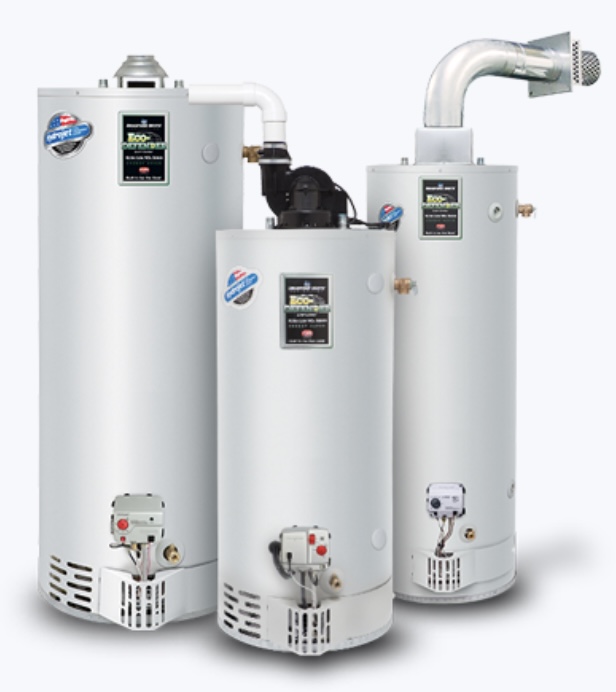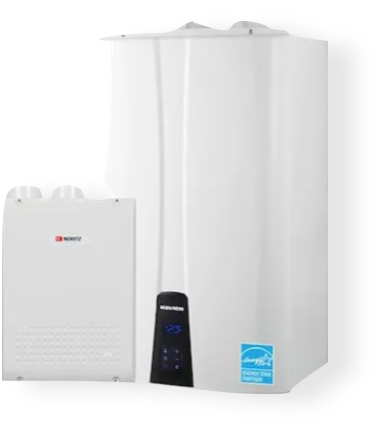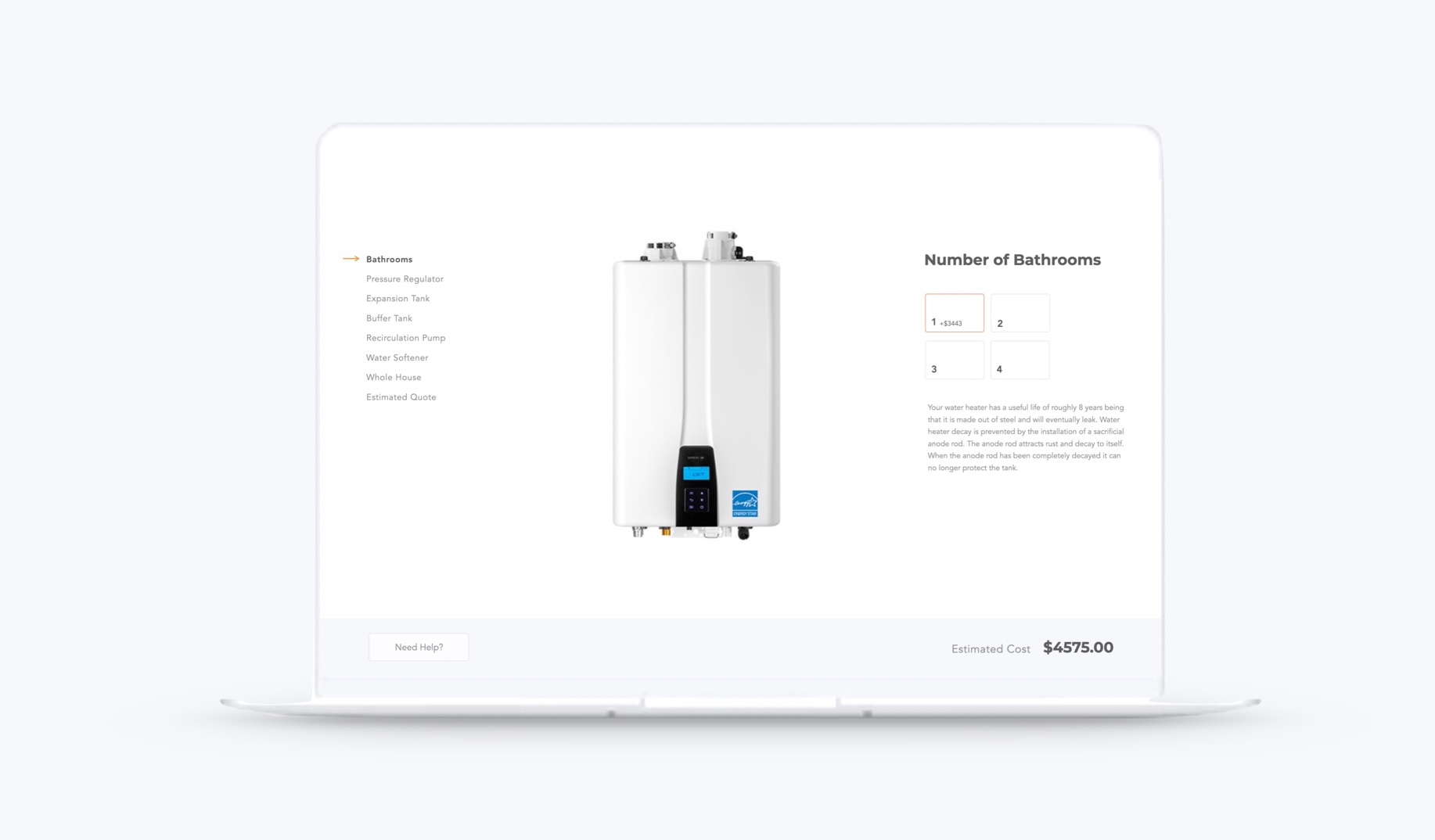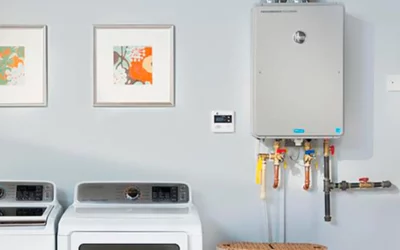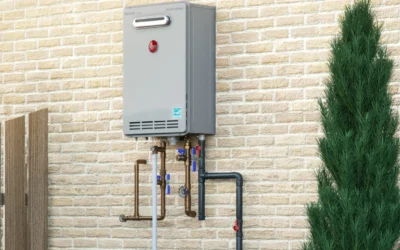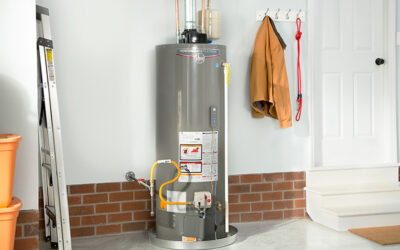When it comes to Bosch tankless water heater repair, there are a few common issues that homeowners may encounter. These include a lack of hot water, low water pressure, and error codes being displayed. Fortunately, there are steps you can take to troubleshoot and repair these problems yourself. Checking for power supply issues, inspecting and cleaning the burner, and flushing the system to remove mineral build-up are some of the recommended troubleshooting steps. However, there are situations where it is best to seek professional help, such as when complex error codes persist, there are gas leaks or strange odors, or major component failures occur. Additionally, regular maintenance is important for prolonging the lifespan of your Bosch tankless water heater. This includes tasks like descaling the heat exchanger, cleaning or replacing the air intake filter, and checking for any water leaks or drips. For more information, you can refer to the FAQs section, which covers common questions about Bosch tankless water heater repair.
Common Issues with Bosch Tankless Water Heaters
Common issues that may arise with Bosch tankless water heaters include a lack of hot water, low water pressure, and error codes being displayed.
1. No hot water
One common issue with Bosch tankless water heaters is the lack of hot water. If you are experiencing this problem, there are a few troubleshooting steps you can take. First, check if there is a power supply issue by ensuring that the unit is properly plugged in and that the circuit breaker is not tripped. If the power supply is fine, the next step is to inspect the burner and clean it if necessary. Over time, mineral deposits can accumulate on the burner, affecting its performance. Lastly, it is recommended to flush the system to remove any mineral build-up that may be causing the lack of hot water. By following these steps, you can troubleshoot and potentially repair the issue of no hot water with your Bosch tankless water heater.
2. Low water pressure
Low water pressure is a common issue that can occur with Bosch tankless water heaters. This can be caused by a variety of factors, such as clogged filters, mineral build-up in the pipes, or issues with the water supply. To troubleshoot and address low water pressure, there are a few steps you can take. First, check the water pressure coming into your home or building to ensure it meets the requirements for the tankless water heater. If the pressure is too low, you may need to contact your water utility provider to address the issue. Additionally, inspect and clean any filters or screens in the water inlet to remove any debris or sediment that may be causing the low pressure. If mineral build-up is suspected, flushing the system can help remove any deposits that may be restricting water flow. If these steps do not resolve the issue, it may be necessary to seek professional help for further diagnosis and repair.
3. Error codes displayed
If your Bosch tankless water heater is displaying error codes, it can indicate a problem that needs to be addressed. Error codes are designed to help diagnose issues with the unit and provide guidance for troubleshooting and repair. Each error code corresponds to a specific problem, such as a sensor malfunction or a gas supply issue. It is important to refer to the user manual or contact a professional to determine the exact meaning of the error code and the appropriate steps to resolve it. Ignoring error codes or attempting to fix them without proper knowledge can lead to further damage or safety hazards.
Steps to Troubleshoot and Repair Bosch Tankless Water Heaters
In order to troubleshoot and repair Bosch Tankless Water Heaters, you can follow the following steps:
- Step 1: Check for power supply issues.
- Step 2: Inspect and clean the burner.
- Step 3: Flush the system to remove mineral build-up.
1. Check for power supply issues
When troubleshooting and repairing a Bosch tankless water heater, one of the first steps to take is checking for power supply issues. This is important because a faulty power supply can prevent the water heater from functioning properly. Start by inspecting the power cord for any visible damage or loose connections. Then, ensure that the circuit breaker for the water heater is in the “on” position. If everything appears to be in order, you can use a multimeter to test the voltage at the power outlet. If the voltage is below the recommended level, it may indicate an issue with the electrical supply to the water heater. By addressing power supply issues, you can eliminate potential causes of malfunction and restore the proper operation of your Bosch tankless water heater.
2. Inspect and clean the burner
Inspecting and cleaning the burner is an important step in troubleshooting and repairing Bosch tankless water heaters. To begin, ensure that the power supply to the heater is turned off. Carefully remove the burner assembly and visually inspect it for any signs of dirt, debris, or corrosion. Use a soft brush or cloth to gently clean the burner, removing any built-up residue. Pay close attention to the flame ports, ensuring they are clear and free from blockages. Once the burner is clean, carefully reassemble it and make sure it is properly secured. This helps to ensure optimal performance and efficiency of the water heater.
3. Flush the system to remove mineral build-up
Flushing the system is an essential step in maintaining your Bosch tankless water heater and ensuring its optimal performance. Over time, mineral deposits can build up within the system, particularly in areas with hard water. This can reduce the efficiency of the heater and potentially lead to other issues such as reduced water flow or heating problems. By flushing the system, you can effectively remove these mineral deposits and restore the heater’s functionality. To flush the system, follow the manufacturer’s instructions provided in the user manual. It typically involves connecting a hose to the heater’s inlet and outlet valves, and then allowing a solution of descaling agent or vinegar to circulate through the system. This process helps to dissolve and remove any mineral build-up, ensuring that your Bosch tankless water heater operates efficiently and provides hot water on demand.
When to Seek Professional Help for Bosch Tankless Water Heater Repair
If you are experiencing complex error codes that persist, gas leaks or strange odors, or major component failures with your Bosch tankless water heater, it is recommended to seek professional help for repair. As one of the top-rated water heater installation, replacement, and repair service companies in San Diego County, Quick Water Heater offers transparent pricing and the highest quality of service.
1. Complex error codes persist
If complex error codes persist on your Bosch tankless water heater, it may be time to seek professional help for repair. While some error codes can be resolved through troubleshooting and simple fixes, complex error codes often indicate more serious issues with the unit. Attempting to repair these issues without proper knowledge and expertise can potentially cause further damage to the water heater. Professional technicians have the necessary skills and tools to diagnose and fix complex error codes, ensuring the proper functioning of your Bosch tankless water heater.
2. Gas leaks or strange odors
If you notice gas leaks or strange odors coming from your Bosch tankless water heater, it is important to seek professional help for repair. Gas leaks can be dangerous and should never be ignored. A professional technician will be able to identify and fix any issues with the gas line or connections. Strange odors could indicate a problem with the combustion process or a potential gas leak. It is important to have a professional inspect and repair the heater to ensure the safety of your home and family.
3. Major component failures
Major component failures in Bosch tankless water heaters can be a significant issue that requires professional assistance. When major components fail, such as the heat exchanger or the control board, it can result in the complete breakdown of the water heater system. These failures can lead to a complete lack of hot water or even potential safety hazards like gas leaks. It is crucial to seek professional help immediately if you suspect any major component failures in your Bosch tankless water heater. A trained technician will be able to diagnose the problem accurately and recommend the necessary repairs or replacements to ensure the proper functioning of your water heater.
Tips for Maintaining Bosch Tankless Water Heaters
Tips for maintaining Bosch tankless water heaters include regularly descaling the heat exchanger, cleaning or replacing the air intake filter, and checking for water leaks or drips.
1. Regularly descale the heat exchanger
To regularly descale the heat exchanger of your Bosch tankless water heater, follow these steps:
- Turn off the power supply to the water heater and allow it to cool down.
- Locate the heat exchanger, which is usually found inside the unit.
- Prepare a descaling solution by mixing equal parts of vinegar and water.
- Connect a hose to the cold water inlet of the water heater and place the other end into a bucket or drain.
- Pour the descaling solution into the bucket or container.
- Open the cold water supply valve to allow the descaling solution to flow through the heat exchanger.
- Let the solution sit in the heat exchanger for about 30 minutes to dissolve any mineral deposits.
- After the designated time, close the cold water supply valve and disconnect the hose.
- Flush the heat exchanger with clean water to remove any remaining descaling solution and debris.
- Reconnect the hose and open the cold water supply valve to flush the heat exchanger thoroughly.
- Once the water runs clear, close the cold water supply valve and disconnect the hose.
- Allow the heat exchanger to dry completely before turning on the power supply and using the water heater again.
Regularly descaling the heat exchanger helps maintain the efficiency and performance of your Bosch tankless water heater, preventing mineral build-up and ensuring a steady supply of hot water.
2. Clean or replace the air intake filter
To clean or replace the air intake filter of your Bosch tankless water heater, follow these steps:
- Turn off the power supply to the water heater.
- Locate the air intake filter on the unit.
- If the filter is dirty or clogged, gently remove it from the unit.
- If it is a washable filter, rinse it under running water to remove any dirt or debris.
- If the filter is not washable, replace it with a new one that is compatible with your Bosch tankless water heater model.
- Once the filter is clean or replaced, carefully insert it back into the unit.
- Make sure the filter is securely in place.
- Turn on the power supply to the water heater.
Regularly cleaning or replacing the air intake filter helps ensure proper airflow and prevents dust or debris from entering the system, which can affect the performance and efficiency of your Bosch tankless water heater.
3. Check for water leaks or drips
One important step in maintaining Bosch tankless water heaters is to regularly check for water leaks or drips. Water leaks or drips can indicate a problem with the system and should be addressed promptly to prevent further damage. To check for leaks, inspect the connections and fittings of the water heater for any signs of water pooling or dripping. Additionally, pay attention to any unusual water stains or moisture buildup around the unit. If any leaks or drips are found, it is recommended to contact a professional for repair or replacement.
FAQs about Bosch Tankless Water Heater Repair
This section provides answers to frequently asked questions about Bosch tankless water heater repair.
1. How often should I descale my Bosch tankless water heater?
Descaling your Bosch tankless water heater should be done regularly to prevent mineral build-up and ensure optimal performance.
2. Can I repair a gas leak in my Bosch tankless water heater myself?
Repairing a gas leak in a Bosch tankless water heater should be done by a professional to ensure safety and proper repair.
3. What does it mean if my Bosch tankless water heater displays an error code?
If your Bosch tankless water heater displays an error code, it typically indicates a specific issue or malfunction within the system that needs to be addressed.
4. Is it normal for my Bosch tankless water heater to make noise?
It is not uncommon for Bosch tankless water heaters to make some noise during operation.
5. How long can I expect my Bosch tankless water heater to last?
The lifespan of a Bosch tankless water heater can vary, but on average, you can expect it to last around 20 years with proper maintenance and care.


